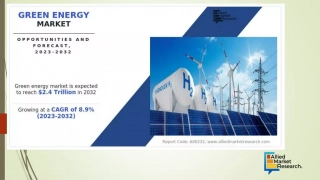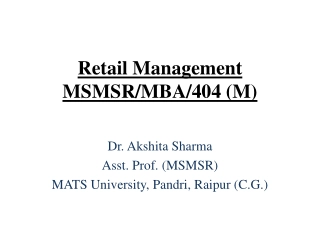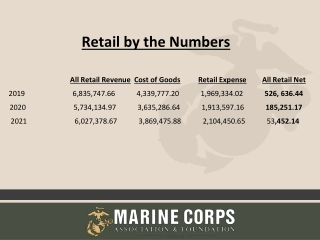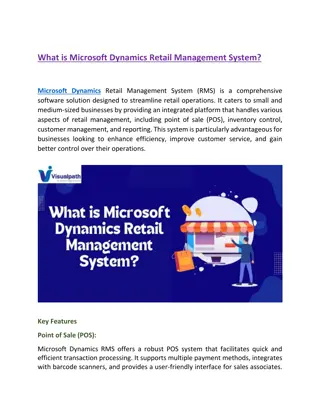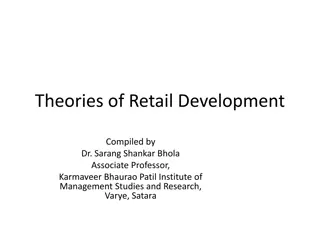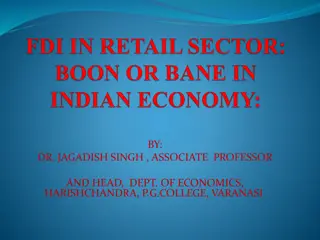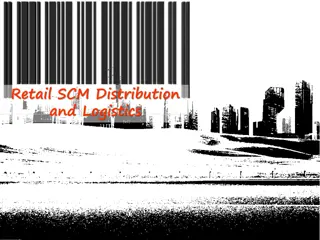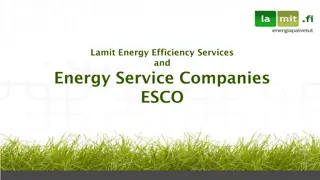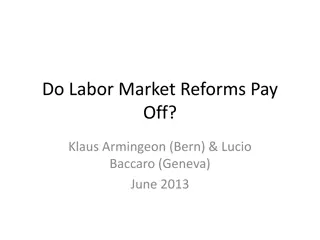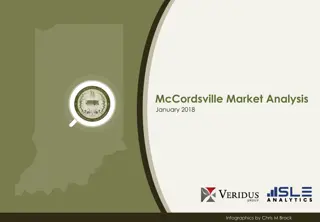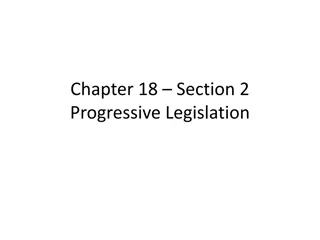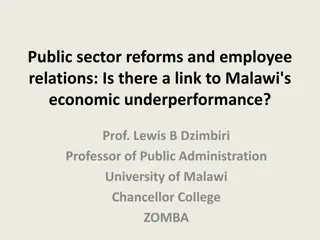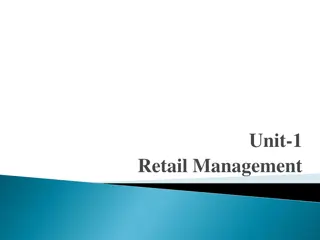Retail Energy Market Reforms Evaluation
Examining the impact of reforms in retail energy markets, focusing on residential sectors and implications for low-income consumers. Discusses challenges in enforcement, licensing, and contract reforms to ensure fair practices and protection for all consumers involved.
Download Presentation

Please find below an Image/Link to download the presentation.
The content on the website is provided AS IS for your information and personal use only. It may not be sold, licensed, or shared on other websites without obtaining consent from the author.If you encounter any issues during the download, it is possible that the publisher has removed the file from their server.
You are allowed to download the files provided on this website for personal or commercial use, subject to the condition that they are used lawfully. All files are the property of their respective owners.
The content on the website is provided AS IS for your information and personal use only. It may not be sold, licensed, or shared on other websites without obtaining consent from the author.
E N D
Presentation Transcript
RETAIL ENERGY MARKETS: DOES REFORM WORK? Barbara R. Alexander Barbara Alexander Consulting LLC barbalex@ctel.net
FOCUS OF PRESENTATION RESIDENTIAL MARKET (SOME STATES INCLUDE SMALL COMMERCIAL IN REGULATIONS) INDIVIDUAL; NOT AGGREGATION MOST OBSERVATIONS APPLY TO ELECTRIC AND GAS (OFTEN MARKETED JOINTLY) 1 NASUCA June 2019
LOW INOME REFORMS DOUBLE WHAMMY: Higher prices for low income and higher costs for assistance programs from other ratepayers due to higher bills and collectible expense when supplier charges more than default service and utility bills and collects supplier charges with threat of termination Eliminate known low income from retail market those participating in utility sponsored low income programs and LIHEAP recipient Reject all enrollments or allow enrollment if price at or below default service ? How identify low income? Only with flag in utility billing system. MOST LOW INCOME NOT PROTECTED How enforce? (NY: special certification; link on web portal; not monthly, but annual calculation) 2 NASUCA June 2019
LICENSING AND ENFORCEMENT REFORMS Fines; revocation or suspension of license; customer restitution are authorized in several states BUT Utility regulators and their staff are not trained to regulate competitive markets Lack of resources; staffing; investigation; litigation; consumer evidence; advocate resources Strict enforcement may be viewed as harm to the development of these markets Reliance on disclosures and rational decision making assumes good faith compliance Constrained by statutory mandates to create competitive markets some regulators still suggest savings and promote shopping as a benefit CHARGING MORE IS NOT A PROHIBITED PRACTICE 3 NASUCA June 2019
CONTRACT REFORMS Prohibit Variable Rate Contracts Teaser rates below default services with either variable or fixed rate prices Fixed prices require customer to understand risk/reward and pricing changes and nature of default prices NEVER EXPLAINED (RESULT: Emphasis on peace of mind ) Eliminate or Restrict Early Termination Fees Regulation/restrictions on negative option renewals 4 NASUCA June 2019
VALUE ADDED SERVICES New York Analysis: NONE RELATED TO PAYING FOR ESSENTIAL ENERGY SERVICES RENEWABLE? Most states have high and higher renewable energy mandates for all Where is renewable? Wind farm in Texas? REC in California? Upsell Furnace and appliance repair contracts Inducement to enroll: Visa card; restaurant discounts; ponzi schemes Free Saturdays! 5 NASUCA June 2019
BILLING AND COLLECTION Purchase of Receivables allows utility to bill and collect unregulated supplier charges with termination of service Suppliers have no incentive to charge a competitive price Supplier Consolidated Billing MD Order DE Order PA proceeding Dual Billing: opposed by suppliers due to shifting risk of collection; is there a loss of oversight? 6 NASUCA June 2019
DISCLOSURE REFORMS Pre-enrollment: Written? Oral? [How enforce?] Post Enrollment: Quarterly Notices of price and compare to Default Service On Utility Bill: conspicuous disclosure of Price to Compare or Standard Offer Historical prices but only for variable rates Reliance on web portals that compare default service and supplier prices Data on use of these portals? Growing complication on terms and conditions NO HISTORICAL PRICE COMPARISONS 7 NASUCA June 2019
WHY DISCLOSURES DONT SOLVE THE PROBLEM RELIANCE ON DISCLOSURES ASSUMES THAT SUPPLIERS WILL COMPLY WITH THE WRITTEN DISCLOSURES. Sales agents and D2D sales agents are third party contractors; no one is monitoring their calls; earnings depend on sale and enrollment Customers respond to oral communications, not written. MOST WRITTEN DISCLOSURES GIVEN AFTER SALE CONSUMMATED TPV is script that requires yes or no answers; no dialogue Many folks don t understand default service, how to compare, even how to do the math; respond to assumption that suppliers are licensed to offer them a benefit Who reads their utility bill? Electronic and automatic payment more common Constant Refrain: Customer is assured, Everything will remain the same. THE REAL DISCLOSURE IS NOT REQUIRED: WE ARE LIKELY TO CHARGE YOU MORE OVER TIME COMPARED TO DEFAULT SERVICE! 8 NASUCA June 2019
DO REFORMS WORK? No evidence that reforms work to prevent higher prices and widespread marketing abuses--NY PSC Staff and advocates, CT, MA, and IL advocates have called for end to this market for individual residential customers CT is key model for this evidence: prohibit variable rates; quarterly disclosures; limited early termination fees Direct Energy Order and $1.5 M fine in CT documents that this is not just the mom and pop suppliers Most retail suppliers buy short term and sell electricity purchased in wholesale market with mark up for marketing costs and profit. This is not a competition among those who own and invest in generation. Aggregation means cheaper costs due to economy of scale and fixed price longer term contracts procured in a competitive process: DEFAULT SERVICE IS AGGREGATION WRIT LARGE 9 NASUCA June 2019


